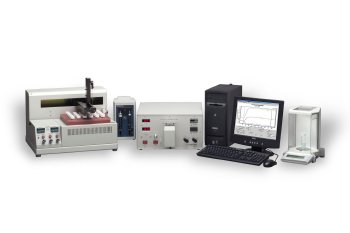A new recorded presentation from Malvern Panalytical compares the use of Dilute Solution Viscometry (DSV) with that of traditional glassware for measuring polymer intrinsic viscosity.
Intrinsic viscosity correlates directly with molecular weight, which is a critical variable for polymers due to its controlling influence on processability and the mechanical properties of the final product. Intrinsic viscosity is therefore used as part of the specification for many commodity and engineering polymers.

'Dilute Solution Viscometry (DSV) as an alternative to traditional tube viscosity measurements' highlights how Malvern Panalytical's Viscotek DSV solution maximizes operator safety, by essentially eliminating the risk of exposure to hot and hazardous solvents, while at the same time improving measurement precision. It is free to download on-demand from Malvern Panalytical's knowledge base at: http://bit.ly/MALTTVS
The Viscotek DSV solution uses advanced pressure sensing technology and ASTM approved methodology in a closed loop system. It combines automated sample preparation and low solvent consumption with highly accurate viscosity measurement. It is self cleaning, self calibrating, and requires minimal maintenance. By reducing human interaction, the automated DSV solution not only ensures maximum safety but also reduces the potential for human error and delivers high analytical throughput .
Capable of automated, highly sensitive measurements of samples in a wide variety of solvents, and with options for high temperature measurement, the Viscotek DSV solution offers significant application flexibility. Common applications include: Polyethylene Terephthalate (PET) in Phenol/Trichloroethylene mixture, Polyethylene (PE) or Polypropylene (PP) in Decalin or Tetralin, Polyvinyl Chloride (PVC) in Cyclohexanone, Nylon in Formic Acid, and Hyaluronic Acid or Cellulosics in aqueous solutions, among others.